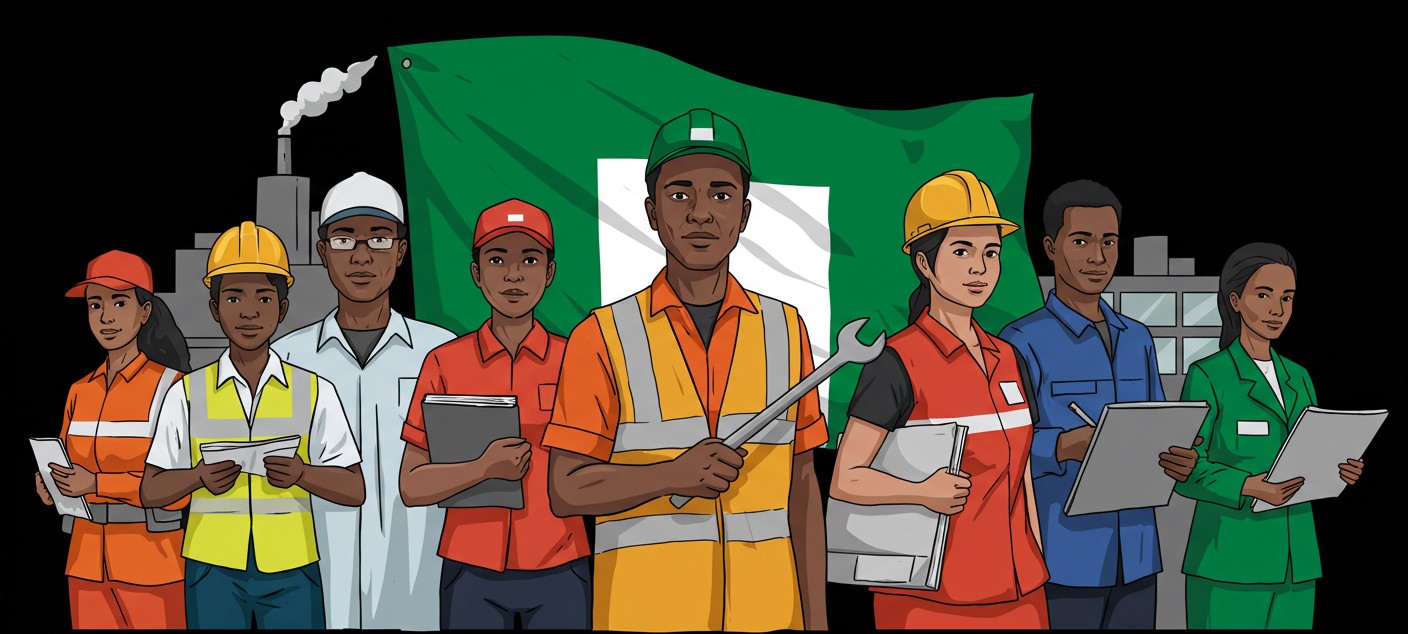Every May 1st, the globe slows down just enough to honor those who keep it spinning. Workers’ Day is more than just a holiday in Nigeria, a country known for its tenacity, courage, and hard work. It’s a day of rest, contemplation, and, in recent years, a branding opportunity for businesses who have realized that rewarding employees is no longer optional, it’s necessary.
The Nigeria Labour Congress (NLC) and the Trade Union Congress (TUC) have organized protests and processions in Lagos, Abuja, Port Harcourt, and other major cities. But away from the streets, in the air-conditioned offices of creative agencies and brand headquarters, another sort of Workers’ Day movement is gaining traction, one that talks through advertisements, commercials and corporate social media posts. It is the increase of brand involvement in labour advocacy and recognition that the distinction between noise and meaning is becoming apparent.
Over the years, numerous Nigerian firms have posted the standard “Thank you to our staff” messages. However, in 2025, the tone feels different. It’s more than simply a celebration; it’s also about communication. It’s about listening to workers’ voices and leveraging platforms to drive meaningful change. MTN Nigeria has always recognised its engineers, agents, and technical professionals with more than just lip service. Their internal ads and staff features are supported by actual activities, ranging from wellness programs to training opportunities, reminding both employees and customers that the company does more than simply offer connectivity; it also practices it.
Fintech platforms such as Moniepoint and Opay are also entering the market. Instead of focusing just on the technologically literate middle class, these firms are developing information and tools to help dealers, kiosk operators, and dispatch riders, the informal sector that receives little attention. Their initiatives go beyond advertisements to include education on savings, protection, and internet access. It’s a subtle but powerful message: we notice you and are constructing for you.
Even fast-food companies have found methods to elevate Workers’ Day above the status of a calendar entry. FanMilk, which is recognised for its nostalgic street presence, has launched advertisements that highlight factory workers and street vendors who bring its product to life. For years, Indomie Nigeria has launched appreciation campaigns, free meal handouts, and media features that promote not just its noodles, but also the people who create and transport them.
Nonetheless, although businesses are coming up with new methods to recognise employees, the NLC and TUC’s message is clear: admiration without action is insufficient. This year, unions in Abuja requested not only a greater minimum wage but also social safeguards, access to healthcare, and a larger role for workers in national affairs. They emphasised that Nigeria could not continue to glorify labour while disregarding the working circumstances that characterise it.
What’s their message? If brands and governments are serious about advancement, workers must be viewed as economic partners rather than as productivity instruments, workers must be viewed as economic partners rather than as productivity instruments. It’s a call to institutions to move beyond hashtags and begin developing mechanisms, financial, emotional, and legal, to safeguard the people behind the procedures.
The gig economy, on the other hand, is a modest but increasing voice among the new workforce. The freelancer. Remote interns. Digital marketers, software developers, content providers, and logistical riders. Their work may be unusual, but their impact is unmistakable. The brands that will shape the future are already noticing this trend, developing flexible benefits and financial packages for freelancers and digital nomads.
Workers’ Day 2025 is more than simply an opportunity to celebrate; it is a mirror held up to corporate Nigeria. It’s a question: what are you doing for your employees? For those working behind the scenes at your factories, call centres, kitchens, and dispatch hubs? The applause is excellent. What about action? That is better.
Workers’ Day should be more than just a day off in a country where so many people work so hard for so little pay. It should be a promise. One that reads, “We see your labour.” We admire your hustle. And we will struggle to make the effort worthwhile.
Read also: Brand equity influences sales effectiveness






Comment
No comments found.